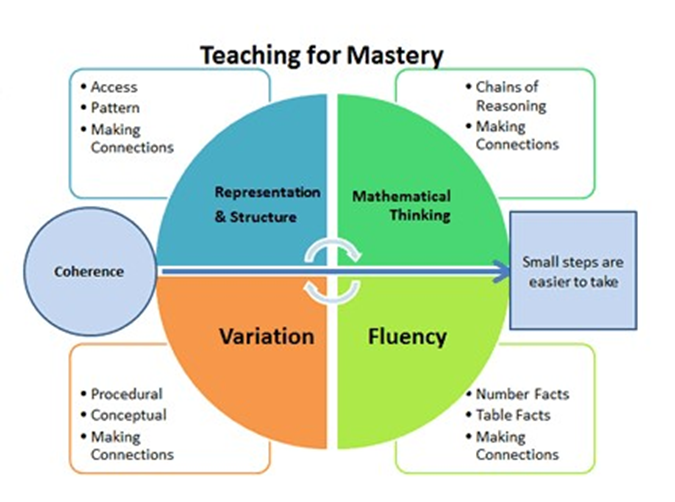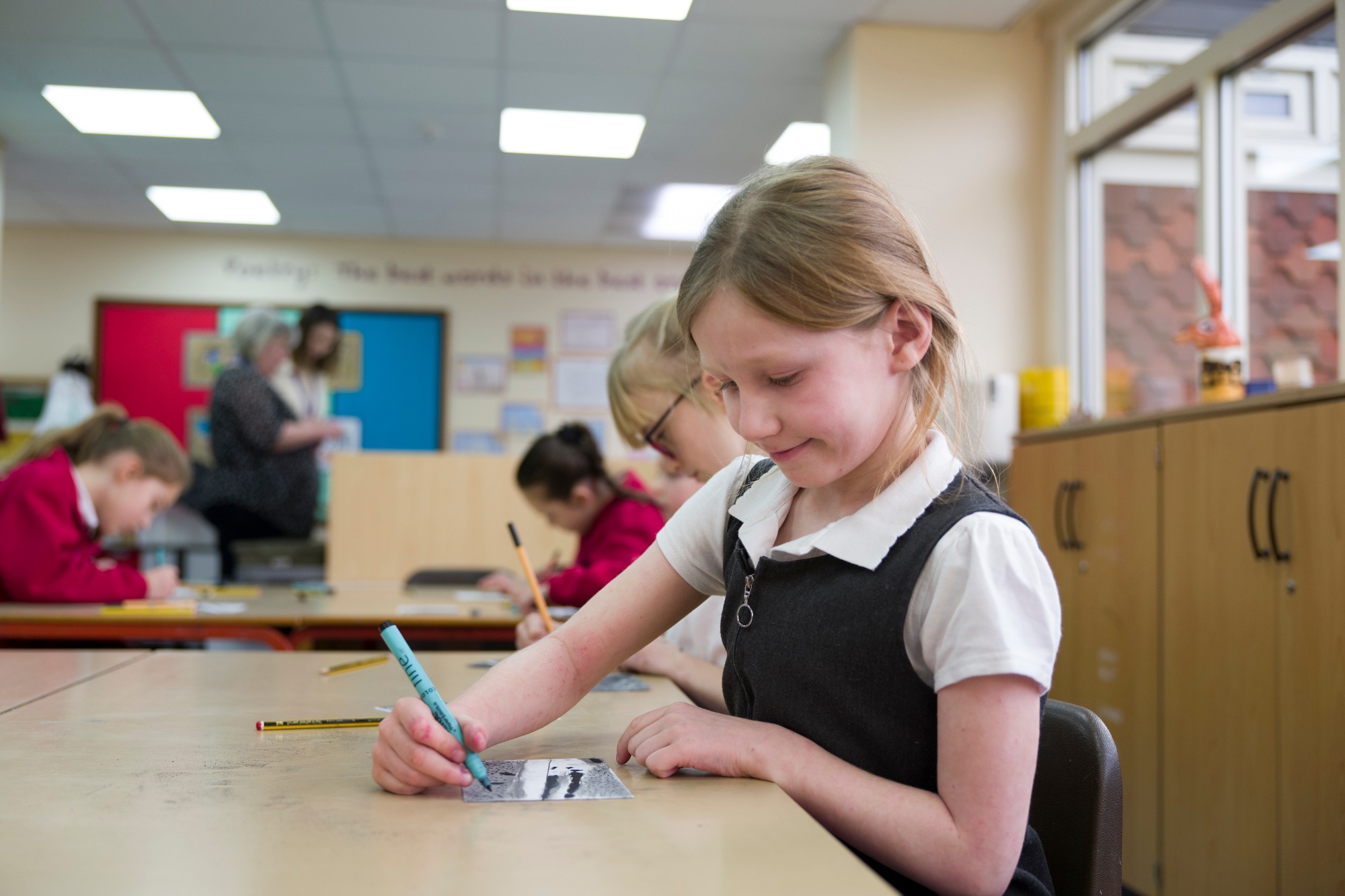Maths
At Keyworth, we believe that mathematics is an essential part of everyday life and that we have a responsibility to ensure that all children leave Keyworth being confident users of mathematics. We recognize that confidence in mathematics will allow children to subsequently become confident students in many other subjects, including science, technology and engineering, in addition its fundamental importance in most forms of employment.

We use White Rose Education as our curriculum and are part of the EME Maths Hub coordinated by the NCTEM.
At KPNS, we aim to:
- Enable all children to develop fully as independent mathematicians who select the best tools for them to solve mathematical problems.
- Offer a range of mathematical experiences that allow children to maximise their potential.
- Promote a positive self-image, self-motivation and flexibility, and to show initiative in the learning of mathematical principles.
- Arouse children's curiosity in mathematics and to encourage risk-taking.
- Promote a fascination with and enjoyment of mathematics through purposeful learning experiences which are related to real life.
- Recognise that mathematics is a powerful means of communication with a language of its own.
- Recognise that patterns and relationships can help us to make predictions and generalisations.
We will implement our vision by teaching through a mastery approach and asking questions like a mathematician.
- Fluency: Quick, efficient recall of facts and procedures and the flexibility to move between different contexts and representations in mathematics.
- Reasoning: Why? How do you know? What do you notice? The anchor task is the best time for free reasoning as children are freely looking for and talking about the signs of maths.
- Problem Solving: Opportunities to apply our fluency in different contexts by identifying key vocabulary in the question.

- Different representations: Children are exposed to a variety of representations in each lesson. They are encouraged to show their answers in different ways and use alternative representations to prove their answer.
- Vocabulary: Relevant vocabulary is introduced at a point at which a concept is first explored and stays with the children on their journey throughout school. New vocabulary is introduced to the children as part of the lesson structure and this vocabulary is applied using stem sentences to allow the children to see the clear link to their learning.
- Spaced retrieval: Children are given opportunities to revisit previous learning using White Rose Flashback 4 slides and other appropriate morning activities. The recap section of the mastery lesson will also require children to draw on previous learning and therefore be ready to apply it to new learning.
Early Years Foundation Stage (EYFS)
Our Curriculum Overview, found below, outlines the comprehensive coverage of mathematics across Key Stages 1 and 2, in accordance with the national curriculum and beyond. The overview also includes relevant details about EYFS. In addition, our EYFS curriculum identifies specific vocabulary, knowledge, and understanding to equip children for mathematics at Key Stage 1. Detailed information can be found in our EYFS planning documentation, accessible on the dedicated EYFS curriculum page of this website.
Below, you will find:
- KPNS Curriculum Overview (including an overview of each YG's curriculum coverage)
- NC Progression and Mapping
- Addition, Subtraction, Multiplication and Division Policies
